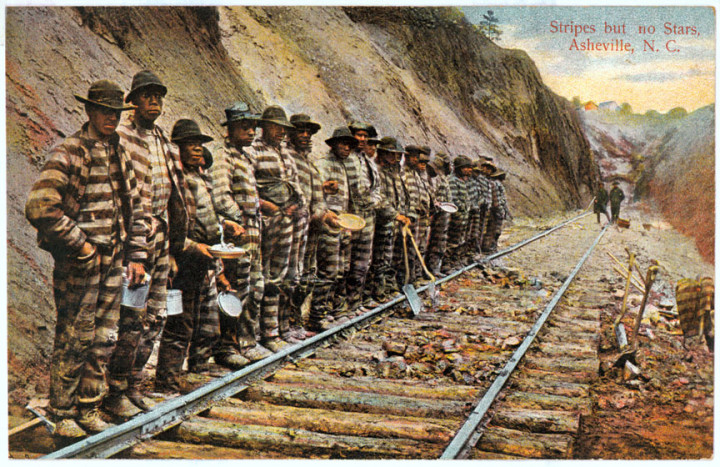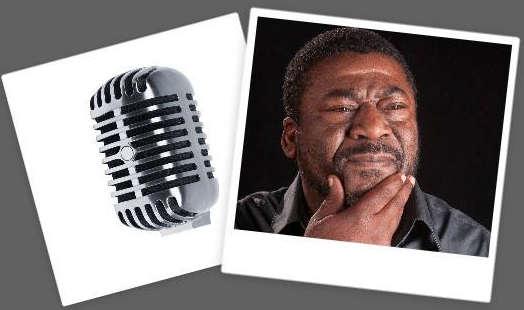Last year, historian and eight-time Story Slam winner, Ray Christian, launched his podcast series, What Ray’s Saying. The monthly program combines storytelling, black history and social commentary. Topics from slavery to skin complexion, foods stamps to death, have all been discussed thus far in the podcast’s initial 11 episodes.
Christian, who teaches at Appalachian State University, spoke with Xpress about the podcasts, the importance of history and the ways in which we are all connected to the past.
Mountain Xpress: Could you tell us about your background?
Ray Christian: I retired from the army after 20 years, in 1998. I went back to school and earned a graduate degree in history and education from NC State. I’ve almost completed with my doctorate now. And I’ve been teaching probably for 15 years at the university level.
Can you speak to your interest in history?
I’ve always been interested in the past, since I was a kid. It’s always been a passion of mine. I didn’t have any single motivator, but it’s something I’ve always been curious about: the past. Part of what I do on the podcast is try and connect the past with the present. … History is not a series of stops and starts, but one long continuum. We’re all connected along that same road. Everything that is happening now is just a continuation of things that have happened in the past. And those are always the connections I’m trying to make — socially, culturally. … It’s something I’ve always had an interest in: Learning about my own past and the past of the world that I’m living in.
What does that connection offer you personally?
It gives me some context for why things happened. Some point of reference. How much things have changed and in some cases how much things have not changed at all.
When it comes to local Black history, what do you think is most overlooked?

Probably the legacy of what was called the convict lease system. In this area of the country, almost all the tunnels, major roadways, mining — a lot of that was done by blacks who were imprisoned. Back in that time, the way the convict lease system worked was a black man could be arrested for something or nothing: loitering, not having a job. … In the convict lease system, they worked till they died. … In this area, [the work was] done by convicts who probably didn’t even come from this area. You see that in some early photographs in this region. How blacks were brought here. That stands out in my mind because all the other blacks who came here were pretty much immigrants … But the convict lease system stands out the strongest when you start looking at the infrastructure in this part of the country and in this part of North Carolina.
What sparked your interest in starting the podcast?
I wanted another mechanism or method to get my word out … and make it more accessible.
What are the future plans for the podcast series?
In a few months, I’ll launch a kickstarter. What I’d like to do is make the podcast longer and have more episodes. Each episode is probably about 25-30 minutes. I’d like to increase them to about an hour. And weekly. It’d be the same format. I’ll have a general topic and I will do a little history, some storytelling and then I’ll comment on them.
What do you hope people take away from the podcast?
I hope that you’ll have some context and a better, deeper understanding of the black experience, which is really the American experience. I try to cover things that are not cliché, stereotypical or just common knowledge. I try to get deeper into the weeds about why ideas are what they are and why people do things that they do. I’ve talked about skin complexion [and] the complexity of the politics of race within the black community itself. … I talk about forced sexual relationships early on during the slave trade and after. I talk about the advantages and disadvantages of skin color. I talk about things like family relationships in the black community — how they were established in the days after slavery, how they work today. And I use personal stories to bring those home.
For more information on What Ray’s Saying, visit facebook.com/whatsraysaying. To listen to the podcast, click here.




Before you comment
The comments section is here to provide a platform for civil dialogue on the issues we face together as a local community. Xpress is committed to offering this platform for all voices, but when the tone of the discussion gets nasty or strays off topic, we believe many people choose not to participate. Xpress editors are determined to moderate comments to ensure a constructive interchange is maintained. All comments judged not to be in keeping with the spirit of civil discourse will be removed and repeat violators will be banned. See here for our terms of service. Thank you for being part of this effort to promote respectful discussion.